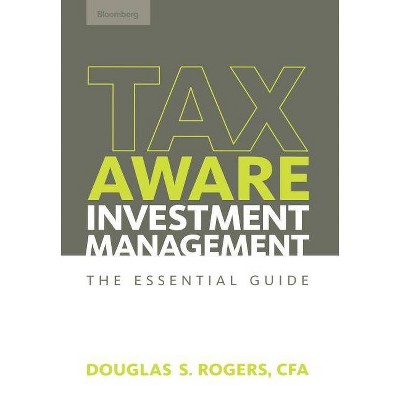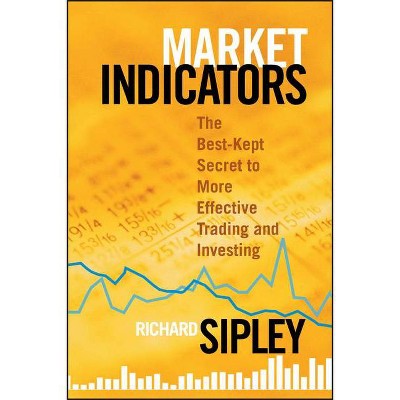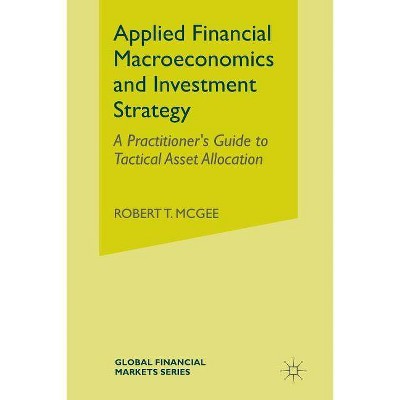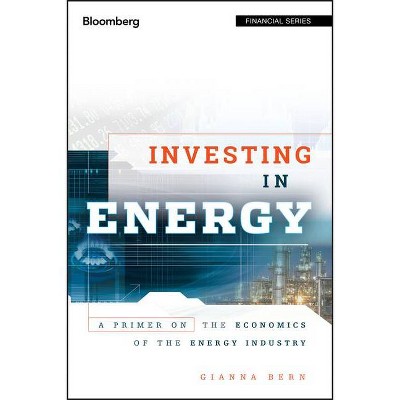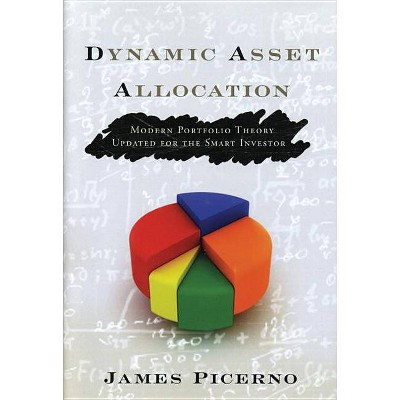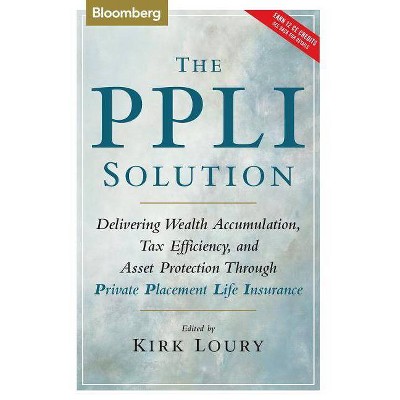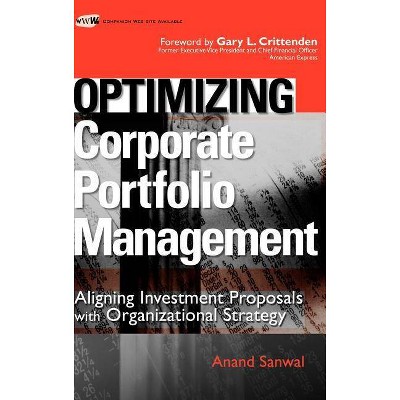Corporate Valuation for Portfolio Investment - (Bloomberg Financial) by Robert A G Monks & Alexandra Reed Lajoux (Hardcover)
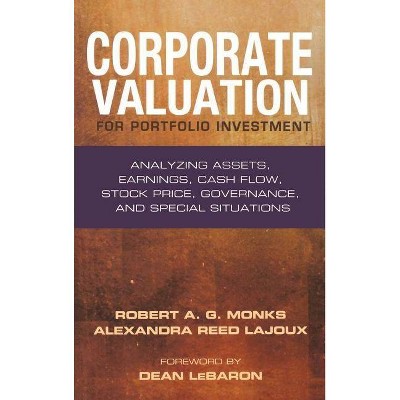
Similar Products
Products of same category from the store
AllProduct info
<p/><br></br><p><b> About the Book </b></p></br></br>This text gives a comprehensive overview of corporate valuation. Institutional investors will find practical and insightful information to help understand and evaluate a corporation's value.<p/><br></br><p><b> Book Synopsis </b></p></br></br>A detailed guide to the discipline of corporate valuation <p>Designed for the professional investor who is building an investment portfolio that includes equity, <i>Corporate Valuation for Portfolio Investment</i> takes you through a range of approaches, including those primarily based on assets, earnings, cash flow, and securities prices, as well as hybrid techniques.</p> <p>Along the way, it discusses the importance of qualitative measures such as governance, which go well beyond generally accepted accounting principles and international financial reporting standards, and addresses a variety of special situations in the life cycle of businesses, including initial public offerings and bankruptcies. Engaging and informative, <i>Corporate Valuation for Portfolio Investment</i> also contains formulas, checklists, and models that the authors, or other experts, have found useful in making equity investments.</p> <ul> <li>Presents more than a dozen hybrid approaches to valuation, explaining their relevance to different types of investors</li> <li>Charts stock market trends, both verbally and visually, enabling investors to think like traders when needed</li> <li>Offers valuation guidance based on less quantitative factors, namely management quality and factors relating to the company and the economy</li> </ul> <p><i>Corporate Valuation for Portfolio Investment</i> puts this dynamic discipline in perspective and presents proven ways to determine the value of corporate equity securities for the purpose of portfolio investment.</p><p/><br></br><p><b> From the Back Cover </b></p></br></br><p>Corporate Valuation for Portfolio Investment</p> <p>The valuation of securities . . . is as big a subject as they come, running in multi?-dimensions from qualitative to psychological, from static todynamic, from one dominant measure to a complex soup, and using measures that range from those that are internal to the observer to those determined bythe markets. In Corporate Valuation for Portfolio Investment, Bob andhis worthy coauthor cover the full range of valuation methods.</p> <p>--From the Foreword by Dean LeBaron</p> <p>Corporate valuation for portfolio investment means determining the present value of future worth. While this may sound like a straightforward task, in reality, it takes time and hard-earned experience to effectively perform this essential financial function.</p> <p>Robert Monks and Alexandra Lajoux understand the difficulty of this endeavor. That's why they have created Corporate Valuation for Portfolio Investment. Filled with in-depth insights and expert advice, this reliable guide addresses the many facets of valuation and reveals what it takes to determine the value of corporate equity securities for the purpose of portfolio investment.</p> <p>Written with the professional investor in mind, Corporate Valuation for Portfolio Investment takes you through a wide range of approaches--including those primarily based in assets, earnings, cash flow, and securities prices--and discusses hybrid valuation techniques that combine aspects of these four main sources of valuation information.</p> <p>Along the way, it also examines the importance of qualitative measures such as governance and details a variety of special situations in the life cycle of businesses, including stock splits, spin-offs, and pension funding.</p> <p>If you're seeking superior returns from investments in corporate equity, then you have to have a firm understanding of valuation. With Corporate Valuation for Portfolio Investment as your guide, you'll be in a better position to improve your sense of a company's worth and the possible price ranges for buy, sell, and hold decisions.</p><p/><br></br><p><b> Review Quotes </b></p></br></br><br>Bob Monks' new book, Corporate valuation for portfolio investment: analyzing assets, earnings, cash flow, stock price, governance and special situations, is a massive tome, weighing in at more than 550 pages that are really aimed at institutional investors... <p>The book is eminently readable, exhaustively treating the subject in simple but engaging language, and using practical examples wherever possible. It explains the concepts it uses as it introduces them. It is both ambitious and modest at the same time, covering all aspects of its subject, but disclaiming precision. It admits the hazards of 'determining the present value of future worth' and that, 'despite GAAP and IFRS, financial reports remain only dim mirrors of company value', stressing other factors 'such as qualitative measures of corporate governance.'</p> <p>Getting to the IR heart, the book claims 'valuation begins from the hour a company's leaders find equity investors who believe so strongly in the company's economic prospects that they are willing to provide capital for it with no strings attached. This belief in a company's future - this hope - is what makes the value of the stock something more than the current value of its assets if valued in a fire sale.'</p> <p>Of course the book does, at length, consider the different ways to assess the qualitative aspects of a company's value, but it also expands on that 'hope' that, ultimately, is the added value of good investor relations beyond sending out the spreadsheets. It is in that qualitative space where an effective IRO can tease out and illustrate the factors that are not susceptible to number crunching.</p> <p>Although the book is officially aimed at fund managers, the authors do express the hope that others will find it interesting and of value. And they should. Its combination of penetrating insights that are sharply expressed and carefully built-up reasoning make it not only an amazingly readable work on one of the drier branches of the dismal science of corporate valuation, but also eminently well suited to analysts, IROs and others who want a refreshing and provocative look at their subject.<br /> -- <b>Ian Williams, </b> Inside Investor Relations, December 3, 2010</p><br><p/><br></br><p><b> About the Author </b></p></br></br><b>Robert A. G. Monks</b> is a pioneering institutional shareholder activist. He founded Institutional Shareholder Services and the LENS Fund, and was chair of the Boston Company. He was a pension administrator in the Department of Labor and was a founding trustee of the Federal Employees Retirement System. Monks is the author or coauthor of a number of books; his most recent are <i>Corpocracy and Corporate Governance</i>, both from Wiley. <p><b>Alexandra Reed Lajoux</b> is Chief Knowledge Officer at the National Association of Corporate Directors (NACD). She has been an editor for Directors & Boards, Mergers & Acquisitions, and NACD's Director's Monthly. Lajoux is the author or coauthor of several books on mergers and acquisitions and received her PhD from Princeton University.</p>
Price History
Price Archive shows prices from various stores, lets you see history and find the cheapest. There is no actual sale on the website. For all support, inquiry and suggestion messages communication@pricearchive.us
